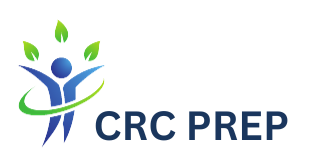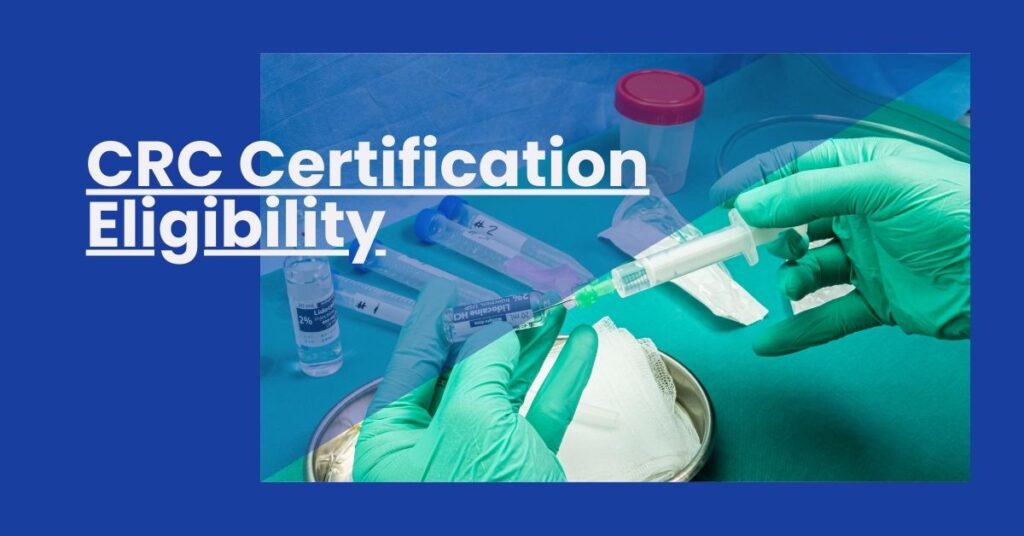Eligibility for CRC Certification depends primarily on education and professional experience in clinical research.
To be eligible, you typically need either:
- A degree in clinical research plus 1,500 hours of work experience
- 3,000 hours of experience without a degree
These requirements ensure you have the foundation needed to uphold the standards of Good Clinical Practice.
In seeking CRC Certification, your next steps involve verifying eligibility, preparing for the exam, and understanding the application process—which this article will guide you through, equipping you to advance your career in clinical research.
- Understanding CRC Certification
- Educational Requirements for CRC Certification
- Work Experience Prerequisites
- Necessary Skills and Knowledge Base
- Exam Eligibility Criteria
- Application Process and Fees
- Maintaining and Renewing CRC Certification
- Common Misunderstandings About CRC Certification Eligibility
- Conclusion: Taking the Next Steps toward CRC Certification
Understanding CRC Certification
If you’re interested in enhancing your expertise and standing out in the fast-paced field of clinical research, obtaining a Certified Clinical Research Coordinator (CRC) certification should be on your radar. This coveted certification serves as a beacon, signaling your commitment and competence in managing clinical research studies with the utmost professionalism.
As an aspiring CRC, you’ll want to familiarize yourself with the intricacies laid out by the Association of Clinical Research Professionals (ACRP), the prestigious body that oversees the certification process. Achieving certification isn’t just about passing an exam; it shows that you’ve met rigorous standards and are equipped to uphold and implement Good Clinical Practice (GCP) guidelines. If that sounds like the type of recognition you’re striving for, let’s dive deeper into what it takes to be eligible for CRC certification.
Engaging in a profession dedicated to advancing medical knowledge and patient care is noble, and the CRC certification is a testament to your expertise and dedication in this field.
Educational Requirements for CRC Certification
Now, let’s talk about your educational background. To be eligible for CRC certification, a thorough mix of academic credentials and real-world experience is paramount. Depending on your academic journey, you might find yourself on one of two paths to eligibility:
- With a Clinical Research Degree: If you’ve earned your stripes through an accredited institution’s clinical research program, you’ll need to accumulate at least 1,500 hours of clinical research coordination experience.
- Without a Clinical Research Degree: Maybe your academic focus was elsewhere, but you’ve since ventured into the clinical research arena. In this case, 3,000 hours of hands-on experience is your ticket to eligibility.
Remember, it’s not just about having a degree. The culmination of your education and experience is what primes you for the responsibilities of a CRC. Should you want a closer look at the mix of education and experience sought after for accreditation, consider exploring more on the ACRP certification page.
Work Experience Prerequisites
When considering your path towards CRC certification, remember that your work experience is not just a timecard to be punched – it’s the essence of your craft. You’ll need to demonstrate a comprehensive understanding of clinical research coordination, which comes from hands-on experience.
What counts as relevant experience, you ask?
- Direct involvement in planning and managing clinical studies
- Oversight of protocols and patient care during trials
- Ensuring adherence to regulatory and ethical standards
Whether you already boast a degree in clinical research or are leveraging your rich on-the-job learning, make sure every hour of your 1,500 or 3,000-hour commitment is infused with quality and purpose.
It’s not just about the quantity of experience, but the depth of understanding you gain with each clinical trial you oversee—a concept CRCC holds in high regard.
Necessary Skills and Knowledge Base
So, you’ve carved out your educational path and cultivated rich, hands-on experience. What’s left? The core competencies, skills, and knowledge that are essential for any CRC are what truly set you apart.
Your arsenal should include:
- Solid understanding of medical terminology: The backbone of effective communication in clinical research.
- Adeptness in data management and attention to detail: Essential for maintaining the integrity of the study’s findings.
- Interpersonal and leadership skills: To effortlessly collaborate with diverse teams and guide clinical projects to fruition.
A strong foundation in these core areas signifies to your colleagues—and importantly, to yourself—that your qualification for CRC certification isn’t just about checking boxes. It’s about embodying the principles of ethical and effective clinical research practice.
While a detailed exploration of these core competencies isn’t something we can fully delve into right here, the Scope of Practice for CRCs sheds light on the breadth of skills and knowledge that exemplify a certified professional.
Exam Eligibility Criteria
When you’re inching closer to achieving your goal, understanding the exam eligibility criteria is of paramount importance. Your path to sitting for the CRC certification exam is paved with specific prerequisites. These are designed not just to filter, but to prepare you for the potential challenges and intricate scenarios you will confront in the field of clinical research.
To be eligible for the CRC exam, you’ll need to ensure:
- You meet the educational prerequisites; and/or
- You have amassed the required amount of professional experience.
Specifically, the Association of Clinical Research Professionals (ACRP) lays out these criteria succinctly: if you hold a degree in clinical research, you must have a minimum of 1,500 hours of work experience. Without that degree, 3,000 hours of related professional experience is needed. These hours are your proof of dedication and your testament to learning; they speak to the time you’ve invested in mastering your craft.
Moreover, the exam itself will cover a comprehensive range of topics, from ethics and patient care to regulatory compliance. This ensures that certified individuals are not just knowledgeable, but also well-rounded in every aspect of clinical research coordination. You can learn more about the types of knowledge assessed in the exam and register for it here.
Application Process and Fees
Navigating the application process is your next step on this exciting journey. A meticulous approach is required, not unlike the precision needed for a successful research study. Your application process begins by creating an account with the certifying body, gathering the necessary documents that validate your eligibility, and submitting these along with the relevant fees.
The cost of applying for CRC certification can vary—a distinction is often made between members and non-members of professional organizations, such as the ACRP. For instance, early bird registration fees for ACRP members stand at $435. This fee structure emphasizes the benefits of engaging with the professional community, which fosters a culture of continuous learning and networking amongst peers. The details regarding the application fees are available on the ACRP certification page.
Maintaining and Renewing CRC Certification
Achieving your CRC certification is a momentous career milestone. Yet, like the ever-evolving world of clinical research, your certification requires ongoing nurturing. Continual learning is not just a recommendation; it’s a necessity in maintaining your CRC certification.
Every certified professional must meet continuing education requirements within each renewal cycle. Typically, this involves completing a certain number of education credits or learning units and submitting evidence of these activities for certification renewal.
This commitment ensures that as a CRC, you remain at the forefront of industry updates, ethical considerations, and technological advancements. Certifying bodies like ACRP outline these maintenance expectations clearly, providing a structured pathway to renew your hard-earned credential. Explore how you can maintain your certification through professional development on ACRP’s certification renewal page.
Common Misunderstandings About CRC Certification Eligibility
In your pursuit of CRC certification eligibility, it’s crucial to steer clear of misinterpretations that could potentially sidetrack your progress. A common misunderstanding, for example, is that any form of academic degree may qualify you for the certification. However, specificity in your educational background is key—degrees directly related to clinical research are given precedence.
Additionally, there might be a temptation to include older work experience or internships within the required hours of professional experience. Be mindful, though, that the ACRP emphasizes current and verifiable experience as part of your eligibility. Understanding these nuances will help in planning your certification journey efficiently.
Misconceptions can also arise about the necessity of accredited certification. While it is true that various educational and training pathways exist, the value of an accredited certification such as that offered by ACRP or CRCC is often held in higher regard by industry employers.
Avoiding these common pitfalls by staying informed is vital. Here’s where you can clear up any confusion: read through the certification blog offered by CCRP for more insights.
Conclusion: Taking the Next Steps toward CRC Certification
Your drive towards securing CRC certification is a testament to your passion for clinical research and a commitment to professional excellence. The journey to certification will augment both your skill set and career trajectory. As you sift through the information on crc certification eligibility, it’s imperative to lay a solid foundation through education, amass the requisite experience, and strive for continual growth in your professional life.
While the process might seem extensive, each step confirms your readiness to take on a role that’s pivotal within clinical research. So, take a moment to envision where this path could lead you, then stride forward with certainty, knowing that every requirement is shaping you to become an exemplary Clinical Research Coordinator.
Ready to embark upon this journey? Visit the ACRP certification page to take your first step toward standing out in the field of clinical research with your CRC certification.
CRC certification eligibility requirements: discover prerequisites for the clinical research coordinator exam, including education, experience, and skills needed.

